 In any series of numbers in arithmetical progression, the sum of the two extremes is equal to the sum of any two terms equally distant from them; as in the latter of the above series 6 + 1=4+3, and =5+2. In any series of numbers in arithmetical progression, the sum of the two extremes is equal to the sum of any two terms equally distant from them; as in the latter of the above series 6 + 1=4+3, and =5+2.  A Concise System of Mathematics ... - Page 58by Alexander Ingram - 1830 - 120 pagesFull view A Concise System of Mathematics ... - Page 58by Alexander Ingram - 1830 - 120 pagesFull view - About this book
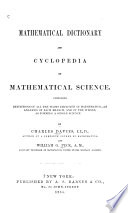 | Charles Davies, William Guy Peck - Electronic book - 1855 - 592 pages
...arithmetical means in the first case, and gcomeIrical means in the second. In an arithmetical progression, the sum of the extremes is equal to the sum of any pair of terms which are situated at equal distances from the extremes. The sum of the progression is... | |
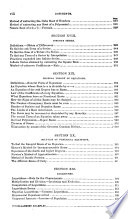 | Elias Loomis - Algebra - 1855 - 356 pages
...the sum of the two extremes, multiplied by the number of terms. It also appears from the above, that the sum of the extremes is equal to the sum of any other two terms equally distant from the extremes. (238.) The two fundamental equations l=a+(nl)d,... | |
 | Samuel Alsop - Algebra - 1856 - 152 pages
...such quantities, then : Ъ — a = d — c, when by transposition b -{- с = a -{- d. § 111. The turn of the extremes is equal to the sum of any two terms equally distant from them. Let a, a -j- d, a + 2 d, &c. be the series commencing with the least. If? be the last terra, then will... | |
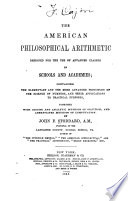 | John Fair Stoddard - Arithmetic - 1856 - 312 pages
...other terms are called the means. From the nature of an Arithmetical Progression, it follows, that the sum of the extremes is equal to the sum of any other two terms equally distant from them, or to twice the middle term; if the number of terms is unequal.... | |
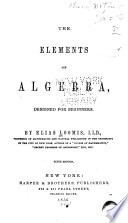 | Elias Loomis - Algebra - 1856 - 280 pages
...two extremes, multiplied by the number of terms. We also see from the preceding demonstration, that the sum of the extremes is equal to the sum of any other two terms equally distant from the extremes. Examples. 1. What is the sum of the natural series... | |
 | Samuel Alsop - 1857 - 150 pages
...represent four such quantities, then : b — a = d — c, when by transposition 6 -f- c = a -(- d. § 111. The sum. of the extremes is equal to the sum of any two terms equally distant from them. Let a, a -f- d, a -f- % d, &c. be the series commencing with the least. IfZbe the last terra, then... | |
 | Archibald Montgomerie - Algebra - 1857 - 116 pages
...(n— l)d} . . to n terms. Or 2*« =n{2«i + (n — Or .<„ =l(ti+tn). It appears from the above that the sum of the extremes is equal to the sum of any two terms equally distant from the extremes. (1.) Prove that tn — EXERCISES, i — "t. (2.) Prove that t, = *i n — ntn. 2*n —... | |
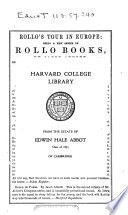 | James Stewart Eaton - Arithmetic - 1857 - 376 pages
...the third is as much greater than the first as the last but two is less than the last ; etc. ; .-. the sum of the extremes is equal to the sum of any other two terms which are equally distant from the extremes ; thus, in the series 1, 4, 7, 10, 13,... | |
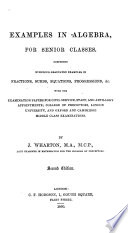 | James Wharton - 1860 - 176 pages
...mean between 2 and 7 ; and shew that the sum of the first and last terms of an arithmetical series is equal to the sum of any two terms equally distant from the first and last terms respectively. (12.) If a : b : : с : d : : e :/, shew that ,. , a + b _ с... | |
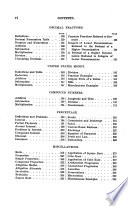 | James Stewart Eaton - 1862 - 320 pages
...terms ? 372. PROBLEM 4. To find the sum of a series, the extremes and number of terms being given. The sum of the extremes is equal to the sum of any two terms that are equally distant from the extremes; thus, in the series, 3, 5, 7, 9, 11, 18, we have 8 + 18... | |
| |